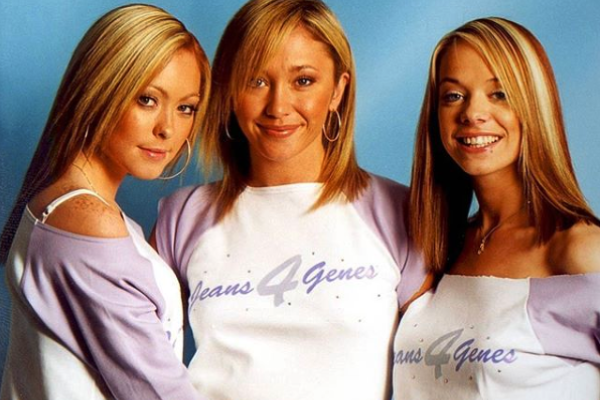Atomic Kitten’s Natasha Hamilton has always been open about her motherhood journey, sharing with other mums about obstacles she’s encountered along the way.
The British popstar even started a blog called Gurgles and Hurdles to help other mums through her experience as a mother of four.
The 36-year-old has three sons and a daughter - Josh (16), Harry (14), eight-year-old Alfie and four-year-old Ella.
Becoming a mother in the the early 2000s was a completely different experience than it is today, Natasha said.
There was hardly any online support available when she was pregnant with her eldest child.
The star recently opened up to Metro about her struggle with postnatal depression, explaining how isolated she felt even at the height of the group’s fame.
“In 2002 it was older mums, mums in their 30s [who were diagnosed]. It was something I didn’t know anything about,” she explained.
“I didn’t know the warning signs, that it could happen to women of any age. My knowledge was limited, so when I was going through it it was very isolating.
“I had this amazing career, we had number one albums and sell out tours, but deep down inside I was really unhappy, struggling with my emotions and felt like I had to hide them.”
The mum suffered in silence for nine-months after her baby’s birth before she was diagnosed.
Because she didn’t have any online support, she tried to attend regular counselling appointments but the invasive paparazzi was making her condition even worse.
“The press were so intrusive. I lost a lot of weight and I was accused of having an eating disorder,” she continued in her interview.
“They were taking pics of me, saying how horrible I looked and that I wasn’t a good role model – and then I went to work and was scrutinised even more.
“It got hard to do my job. I wanted to be a mum and I didn’t want Josh to remember me as someone who cried all the time.”
Natasha was afraid that if she did speak out about her condition, people would make light of her depression, saying she should be happy because she’s rich and famous.
“If I came out saying I was feeling depressed, people would judge me about what I had to feel depressed about. I didn’t feel all those lovely things you’re meant to feel when you’ve got a new baby.
“I did suffer in silence and it made it a lot worse. If I could have just confided in my parents or friends, but I didn’t, I locked it all away and that’s the worst thing you can do in suppressing your feelings because they will all come out."
With her last pregnancy, the mum also experienced frequent panic attacks and was unable to take medication because she was expecting.
And when Ella arrived, she was hit by a wave of the same depressing feelings.
“I was breastfeeding and whenever it was coming to feeding time I would get a straining in my stomach.
“It felt like the anxiety and depression I’d felt in the past. In the end I had to stop breastfeeding, I couldn’t enjoy it. And I was diagnosed with postnatal depression again. It was tough.”
However, she found support years later in 2012 when she discovered on online forum for mums.
She was able to talk about her postnatal depression, anxiety, and the tragic miscarriage she suffered before the birth of her son Alfie.
Women who had struggled with the same condition reached out to her and showed her that she was not alone and should not be judged for these normal feelings.
To read more about Natasha’s experience with postnatal depression, you can visit her blog where she tells her story in-depth.
Understanding postnatal depression can be easier if you look for common signs and symptoms, and it is important to seek help immediately.






